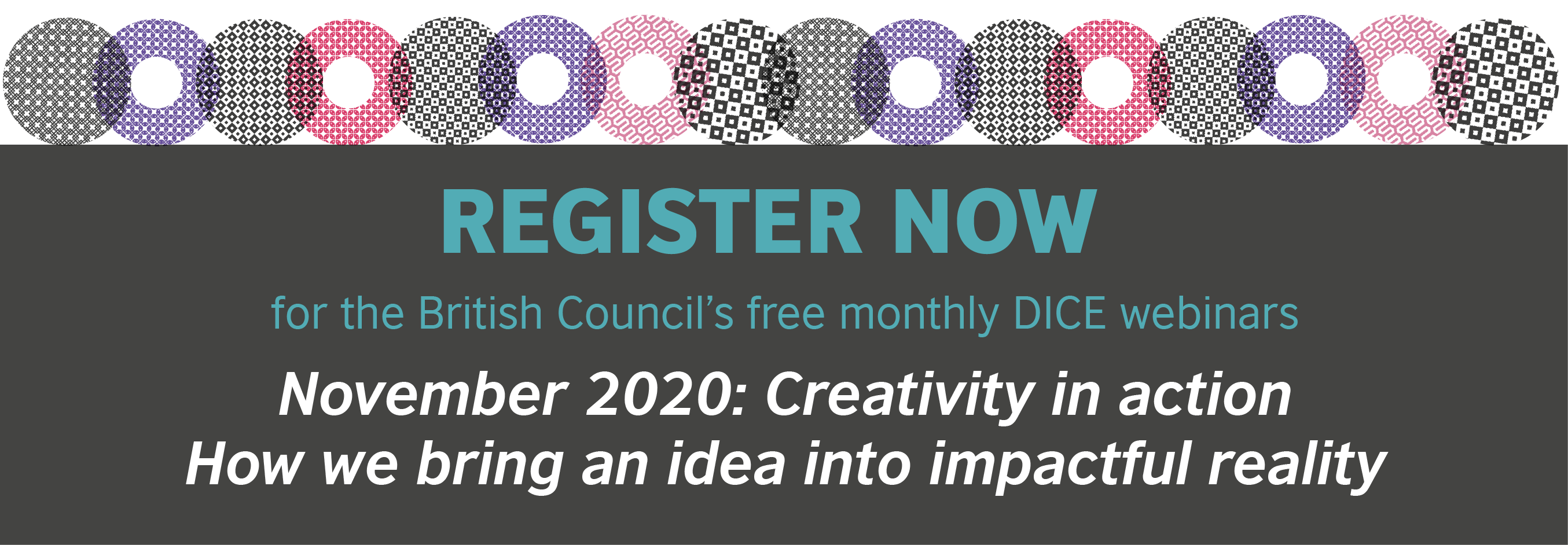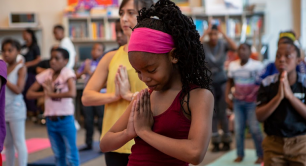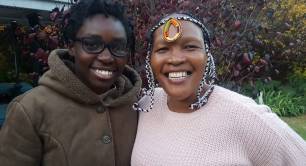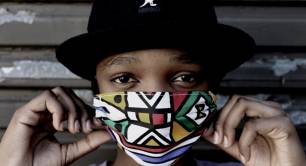A creative buzz in Makers Valley: artists and entrepreneurs turn decayed Johannesburg neighbourhood into inclusive economy hub
A new wave of creative energy is helping to regenerate part of South Africa’s largest city – and a dose of inspiration and experience from people who have done the same thing in the UK’s port city of Plymouth is helping move things along.

Something is happening in East Johannesburg. This is a large area of the inner city that covers Bertrams, Troyeville, New Doornfontein, Judith’s Paarl and Lorenztville. It has suffered a process of urban decay but is now showing signs of revival with growing activity by new businesses, residents, and social and creative entrepreneurs. Previously abandoned old factories and buildings such as the Victoria Yards complex are being used again. Those involved include artists, artisans, urban gardeners, carpenters, auto-mechanics, shoemakers, metal and woodworkers, poets, clothing designers and youth workers.
Unemployment remains high, with pockets of poverty and new development co-existing side by side. The area still has informal settlements, but also houses the global headquarters of Nando’s, the fast-food chain.
Most importantly, the wave of new entrepreneurs is helping re-brand the entire area, which is now being called Makers Valley, defining itself as “the heart of Johannesburg’s social and creative enterprise”. Some see it as an example of an emerging new economy, built around encouraging creativity, sharing, learning, participation and mutual support for positive change.
Pretty much at the centre of a complex network of entrepreneurs, organisations and partnerships is a creative social enterprise called Makers Valley Partnership which is involved in a project supported by the British Council’s DICE Fund to strengthen development of the area. The aim is to offer training, mentorship, and seed funding to women and youth who have been excluded from mainstream economic opportunities.
Simon Sizwe Mayson of Makers Valley Partnership explains that the British Council funding comes in though a local alliance called the Johannesburg Inner City Partnership (JICP). In turn, Makers Valley Partnership is managing the project on its behalf and helping individual enterprises scale their activities. Among these enterprises are 94 Colours (youth focused events), Reimagination (social work with high school students), Anchor (work with ‘NEET’ – not in education, employment or training – youth) and the Curriculum Development Project ( a collective of women artists and makers).
To assist the overall development of the Makers Valley concept, the DICE Fund has enabled a link with a long running successful project in the UK city of Plymouth. There, the Real Ideas Organisation (RIO) has over 15 years helped build up a thriving social and creative enterprise scene.
Ed Whitelaw, head of enterprise and regeneration at RIO, explains: “A bit like Victoria Yards in Johannesburg, we have venues, we have a bakery, we have offices; we have artists' work spaces, we sell tea, coffee, floor space, weddings, events – real things the customers understand.”
Ed travelled to Johannesburg to take part in intensive workshops with Makers Valley Partnership and the organisations it was seeking to support.
Three key themes
At least three big themes were explored through this partnership. The first was that so-called infrastructure organisations – like Makers Valley Partnership – are necessary but need to be lean and highly focused on the needs of their members. The Plymouth Social Enterprise Network represents and promotes the needs of its members to the city authorities and other stakeholders. But Ed warns that such networks have the potential to go horribly wrong. This happens when they build up their own bureaucracy, staff and overheads which in the worst case leads to perverse incentives, putting the membership organisations before the members and ultimately committing “infanticide” – competing with their member organisations for resources. Instead, they should ideally have what he calls a graphene structure, named after the molecule which is “flat, flexible, highly connected, strong and stable”.
This graphene model certainly chimes with Simon’s approach. He says Makers Valley Partnership aims to be “a support team which does minimal work itself; mostly what it is doing is supporting its partners who are actually the implementing agents.” He adds that Makers Valley Partnership has also used workshops to help build a ‘theory of change’, trying to find the optimum balance between loose and more structured collaboration.
A second point is that “gentrification” is undesirable. Gentrification happens when a previously neglected area becomes highly fashionable. This triggers a big inflow of wealthier people, property prices rise, and this leads eventually to the expulsion of the original communities.
Simon says: “We need to be careful about how we market ourselves, we don’t want to create displacement in the neighbourhood.”
Instead he wants to focus on filling empty business spaces and old warehouses, creating a response to the continuing problem of unemployment.
In Plymouth, RIO has tried to avoid “falling into the obvious traps like quick gentrification, which doesn’t seem to solve social problems, it just moves them round”, explains Ed.
We need to be careful about how we market ourselves, we don’t want to create displacement in the neighbourhood
The third point is related to marketing and promotion. Plymouth was able to win recognition from Social Enterprise UK as one of the country’s first “social enterprise cities”. At one level, Ed says, recognition was no more than “winning a badge”, but it helped focus attention on what had been achieved. “We can point to £6m-£7m in additional investment for the city, we have 200 social enterprises that employ 9,000 people directly, with a turnover of just over half a billion pounds – so all of a sudden that becomes quite an influential lobby,” he says.
The idea is that Makers Valley could take a similar route, becoming recognised as “the first social and creative enterprise city in South Africa”. That would help and reinforce promotional activities. A festival had been planned for March to attract 10,000 visitors, but had to be put on hold because of the Covid-19 pandemic.
Other themes also emerged. RIO has been struck by the innovative approach of Makers Valley partners. 94 Colours, for example, is run by two young founders who have brought an eclectic combination of youth work, tour guiding, marketing, upcycling and fundraising to help victims of the Mozambique floods, all with the kind of lean and efficient structure that it likens to the graphene molecule. As a result, RIO has raised the money to bring the founders to the UK to explain their approach.
- Read more about 94 Colours in our feature by South African Young Storymaker Dimpho Nonhlanhla Lekgeu
Keneilwe Manganya, a Makers Valley Partnership project manager says the DICE programme has also had unexpected benefits, “fostering new partnerships and collaborations among our partners which we hadn’t expected to happen”.
The British Council and the DICE Collaborators (including the organisations featured in this article) invite you to join them in a series of conversations about reducing inequalities, collaborating across borders and oceans, and operating impact-focused enterprises at a time of profound change. These free, monthly live events are co-hosted by impact-focused organisations in Brazil, Egypt, Indonesia, Pakistan and South Africa and their partners in the UK, and draw on their experience of collaborating across borders to address challenges such as youth unemployment, environmental catastrophe, disability rights, and gender inequality in local communities. Find out more and register here.
The DICE Series tells the stories of collaborations which brought together enterprise development experts from the UK with specialists working in five emerging economies – Brazil, Egypt, Indonesia, Pakistan and South Africa – during 2019-20 with the aim of addressing entrenched issues of economic and social exclusion. Read more about the British Council’s DICE programme here.





